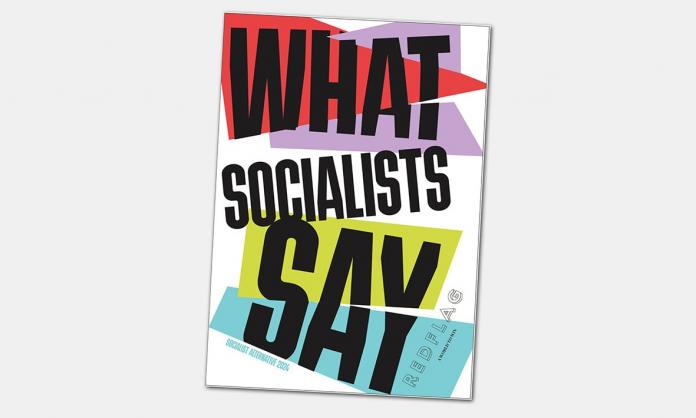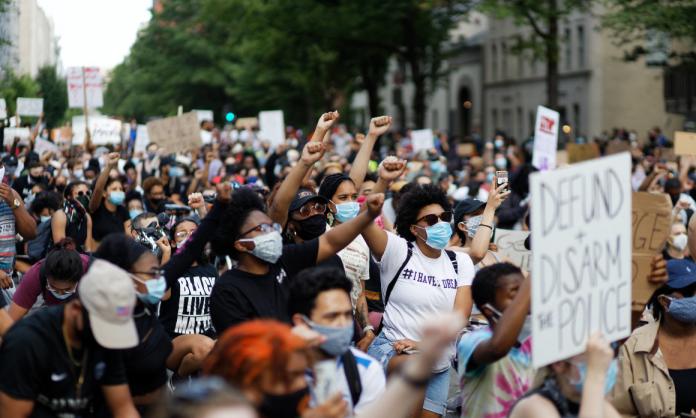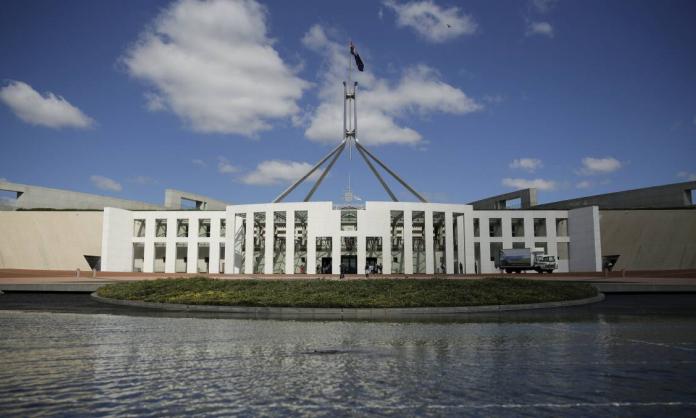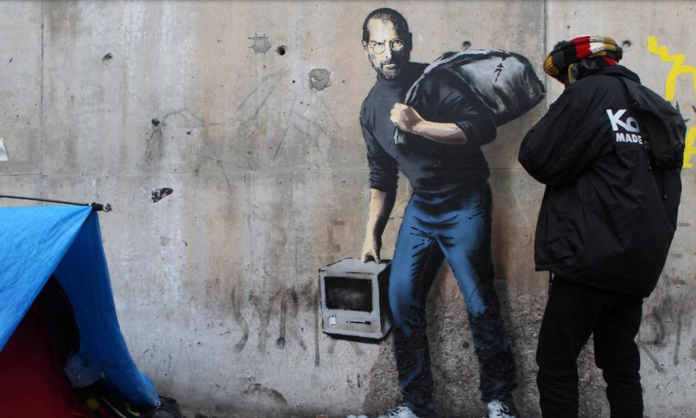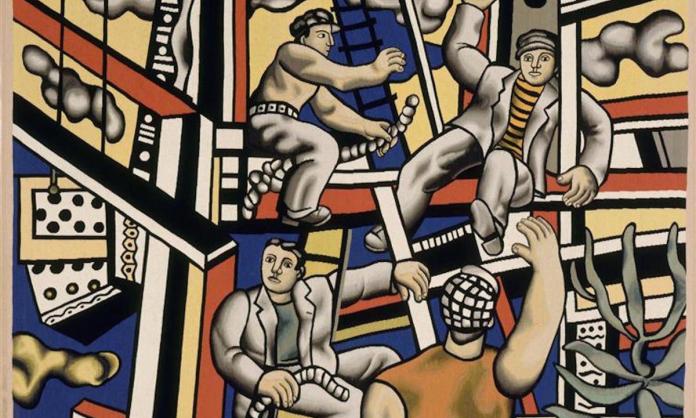Socialist Alternative is the largest left-wing revolutionary group in Australia. We are the only socialist group with a national presence and an expanding membership.
We’re known for leading campaign groups against racism and fascism, for Palestine, for refugee rights, for climate justice, for workers’ rights and against education cuts.
We led the successful street movements for marriage equality and a militant student movement that defeated the Liberals’ plan to impose $100,000 university degrees. Just in the last few years, we’ve led demonstrations of tens of thousands in response to the bushfire crisis of 2019, brought out even greater numbers in support of abortion rights in Melbourne, and helped to organise the recent Palestine solidarity movement in every city.
Ultimately, socialism is about taking power away from the billionaires and putting it in the hands of working people, so rebuilding our trade unions is vital. The organising efforts of Socialist Alternative members in workplaces across the country have won them respect and recognition across a range of industries. Sometimes this has been the consequence of our leadership in strikes and other industrial campaigns. A recent example led to the defeat of a plan to impose a 15 percent wage cut on every worker in the university sector, a plan that was being pushed by the university union itself (yes, you read that right).
Our most significant effort in recent times has been the campaign to get the first revolutionary socialist elected to an Australian parliament in more than 50 years. This gargantuan effort involved reaching out to more than 190,000 voters across the north and the west of Melbourne, through door knocking, public meetings, protests and more. We just missed out on winning a seat, but we were proud to get more than 8 percent in a range of working-class suburbs, an historic result that has been widely acknowledged—even by the mainstream parties.
All of this has been possible due to the growth in size and experience of our organisation. Without committed socialists working tirelessly, Australia would be a more passive, more right-wing place.
Every person reading this article has a role to play in building a socialist movement that can make a difference to the world, right now. If we had a few hundred or a few thousand more members, the possibilities for action would multiply.
Having said that, the sort of people who consider joining a socialist organisation are not motivated only by the fight to build a union at work or combat sexism in everyday life. There are other groups whose sole focus on those issues. The point of a socialist group is to fight to overthrow the capitalist system.
While that is a big task, there’s some good news: according to researchers at the Center for Strategic and International Studies in the United States, the 21st century has witnessed more mass demonstrations and revolutionary events than any era of modern human history, even adjusted for population growth. Protests, strikes and even revolutions have swept the world, from Chile to Egypt, Hong Kong to the US. This peaked just before the pandemic, when 2019 saw sizable protests around issues as varied as climate change, democratic rights and economic equality.
These movements are inspiring to observe and exhilarating to participate in. In them, the downtrodden and the unseen burst onto the stage, demanding a better world for all. Their energy and militancy awaken society to injustices that had once gone unchallenged, and offer hope that change is at hand.
Those who have participated in such events never forget the sense of communion, strangers united in solidarity; a tantalising glimpse of the power of humanity at its best. They confirm all the basic arguments of Marxist theory: that capitalism is a system of crisis, that workers will fight back, and that their struggle contains within it the seeds of a better world.
Yet for every heroic revolutionary struggle there is a story of tragic defeat. The crises that generate mass resistance—economic, social or political—do not last forever. The politicians and billionaires adjust to the new situation and find ways to respond. So if immense social movements and revolutions spring seemingly out of nowhere, they can often recede or be put down even more suddenly.
The repeated failure of such movements is a result of the lack of strong and radical working-class institutions, most important of all being a mass socialist party. The billionaires and politicians have a million ways to shield themselves from the rage of the exploited and oppressed: from repressive laws and armed police all the way to having in their pockets the moderates (usually self-described “realists”) who work to undermine our movements from within. Here I’m talking about NGOs, reformist politicians and union bureaucrats, who are always eager to contain and diffuse popular anger.
Challenging these types of politics is crucial to building effective campaigns around all sorts of issues. Moderates often oppose the most minimal social and industrial activism, for fear of alienating their “friends” in high places. The climate and refugee NGOs, for instance, are the most typical examples of this trend. They have gone into total hibernation, not because climate change has been addressed properly, but because they want to avoid undermining the Labor government. This explains why a small socialist group is responsible for far more progressive activism in this country than much larger organisations like the Greens, Amnesty International and so on.
These same political debates unfold in revolutionary moments, but the stakes are much higher. Should people demand everything they need and want, or do they put up with crumbs? Should workers self-organise and take disruptive action, or instead place their hopes in gradual change via the official channels? A socialist party is vital to combat the latter arguments, which are backed up by both the carrot of appearing “respectable” and the stick of police and military repression. To put it bluntly, socialism will never win unless we can break the stranglehold of reformists over the workers’ and student movements.
This isn’t just about simply swapping the old leaders for better ones. In that scenario, the new leaders could just as easily sell-out as the current lot do. When revolutionaries talk about leadership, we are talking about a radical, democratic type of leadership, in which hundreds of thousands of working-class militants are supported to be effective radical leaders in their workplaces and wider society.
In the climactic moments of a revolution, a mass socialist party is necessary to popularise the arguments for workers’ power and to smash the police, the jails and the armies that defend the dictatorship of capital. Only then can workers begin to reorganise society to meet human needs, which will include an end to oppression and exploitation as well as a reorganisation of our abusive relationship with nature.
For now, we’re a long way away from that point.
There are two big traps that socialists can fall into in moments when revolution is not on the immediate agenda. One is to lose sight of this long-term goal and just focus on lifestyle changes, charity provision and accepting that tokenistic reforms are the best we can get. The other is to daydream about a revolutionary future while doing nothing to bring it any closer. It’s easy to make the first mistake when there isn’t much going on—something is better than nothing, right? There is also a temptation to make the other error, as demonstrated by the internet left, where seemingly ultra-radical anarchists and Stalinists happily coexist in glorious isolation from any real-world resistance.
A socialist organisation, even a relatively small one like Socialist Alternative, can help avoid these traps. It’s a self-selecting group of people who are committed to organising resistance right now while also preparing politically and theoretically for the bigger challenges to come. The more people involved in such a group, the more likely it is that the skills, knowledge and political principles accumulated through generations of class and social struggle can be passed on and built upon in a way that can shape the future of the workers’ movement. And ultimately, it will determine whether our side wins or loses.
That’s why the most important task of any socialist organisation is to grow. It is only by building a mass socialist movement that we can begin to have a real impact on society. Small groups of radicals can occasionally punch above their weight by going viral or by calling well-timed demonstrations. But to seriously organise a challenge to capitalism, we need socialist activists and organisers embedded in every workplace, campus and social struggle.
For this reason, every serious revolutionary socialist has to be a recruiter, winning others to the ideas of socialism and to an organisation that can make those ideas a reality.
Capitalism encourages us to be self-centred: to focus on our image, our studies, on paying the bills. Socialists prioritise building a movement that has a shot of fixing the root causes of society’s problems once and for all. The other option is that creeps like Elon Musk will continue to rule the world. Who wants that?
This is a revised version of a 2022 article, “Why you should join Socialist Alternative”. It has been updated for the 2024 Red Flag campus supplement.





